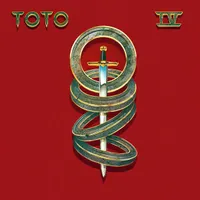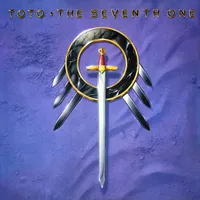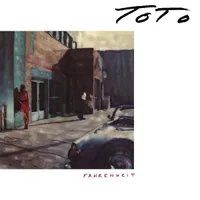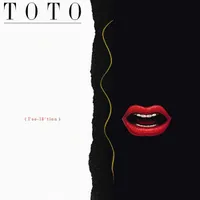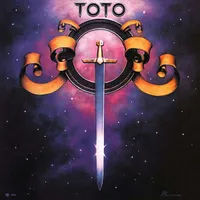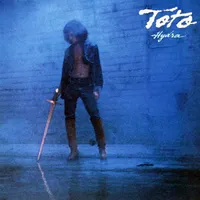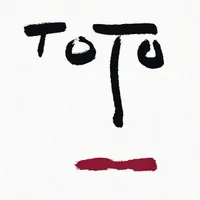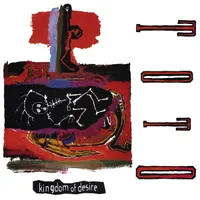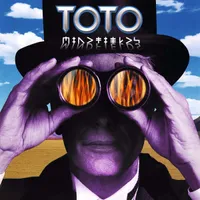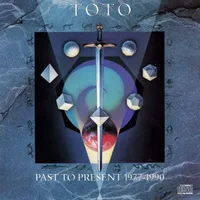With sales of more than 40 million, these are the Toto albums you should definitely listen to
A group of talented musicians with a bunch of tracks among the top of the AOR pops, Toto are among the genre’s big boys - and these are their best albums
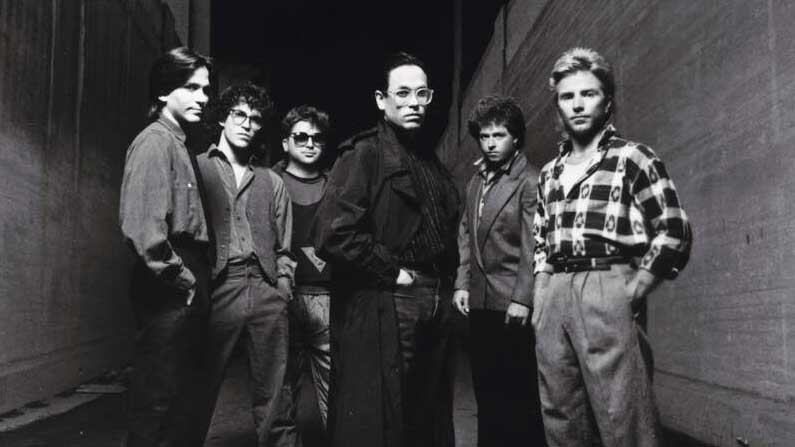
As amazing as it may seem, in an age when the playing of their ubiquitous Africa can be the making of any social gathering, Toto weren’t always as universally loved as they are in 2024.
Sure, 1982’s Grammy-dominating Toto IV might have supplied the hits and made the band a household name, but while Africa, Rosanna and I Won’t Hold You Back filled up the charts, rock fans who’d been taken with the band’s early records poured scorn on the ballads.
A similar fate was suffered by fellow melodic rock bands like REO Speedwagon, Foreigner and Journey, as record labels realised that radio might play the ballads but weren’t going to play sturdier tracks.
Toto’s cause was further unaided by the fact that many in the media saw them as session musicians – most of the band worked on yacht rocker Boz Scaggs’ 1976 classic Silk Degrees, and would go on to provide much of the backing music on Michael Jackson’s gargantuan Thriller – and took a decidedly dim view of the band’s excellent musicianship and ability to write extremely catchy material.
Debut Toto (1978) and follow-ups Hydra (1979) and Turn Back (1981) mixed hard rock with touches of prog, funk and fusion, while Hold The Line from the debut had given the band a big hit and a radio rock staple. But with IV they went supernova.
It didn’t last long, however. Singer Bobby Kimball was axed for the better-looking/ sounding Fergie Frederiksen for 1985’s classy Isolation, but lasted just that one album. Joseph Williams came in for Fahrenheit (1987) and The Seventh One (1988), but the classy AOR sound didn’t fare well in the age of hair metal.
Drummer and erstwhile band leader Jeff Porcaro died tragically after the release of 1991’s harder-edged Kingdom of Desire, and was replaced by Simon Phillips. Bobby Kimball reunited with the band for 1999’s excellent Mindfields, but lasted two more albums before being replaced again by Joseph Williams, who continues to front the band to this day. Bassist Mike Porcaro succumbed to MND in 2015.
Guitarist Steve Lukather continues to lead Toto from the front – early next year they tour Europe and the UK – but another studio album, who knows? Still, with more than 40 million albums sold, six Grammy Awards under their belt and the band members appearing on some of the most successful albums of all time, one could say their work is pretty much done.

Understandably Toto’s only album to reach No.1, Toto IV is a triumph of classy musicianship and stellar production values. It also featured three of the band’s biggest and best-known songs in Africa, Rosanna (written about actress Rosanna Arquette, who was dating keyboard player Steve Porcaro at the time) and I Won’t Hold You Back, while deeper cuts such as Good For You, Lovers In The Night and Afraid Of Love added musical muscle.
For the sake of accuracy, regarding the lyrics to monster hit Africa, it should be pointed out that Mount Kilimanjaro cannot even be seen from the Serengeti (200 miles away), let alone rise above it ‘like Olympus’.
The Seventh One (Columbia, 1988)
Recorded at a time when the band’s hedonistic streak was running amok, The Seventh One remains one of the finest of AOR albums, with singer Joseph Williams settling into his role with aplomb.
Opening track and first single Pamela hinted at 1984’s Rosanna, and remains one of the band’s greatest songs, head and shoulders above the shameless re-write of Africa that is Mushanga, but cuts such as Stop Loving You (featuring Yes’s Jon Anderson on backing vocals), the ballsy Stay Away, Only The Children and Home Of The Brave are the kind of killer AOR that most bands would bite your hand off to write.
With Joseph Williams replacing Fergie Frederiksen on vocals, Fahrenheit saw Toto reverting to the polished AOR sound of IV rather than continuing with the driving hard rock of previous album Isolation.
Williams’s sweet vocals were the perfect fit for the sublime pop-rock of Till The End, We Can Make It Tonight and Could This Be Love. The Lukather-written ballad I’ll Be Over You rates as one of his very best, while the funky title track reminded everyone that these were the guys who supplied much of the backing music to the biggest-selling album of all time (that’s Michael Jackson’s Thriller, if you didn't read the introduction).
With singer Bobby Kimball ousted from the band due to drug-related legal issues, former Le Roux vocalist Fergie Frederiksen was brought in for Isolation, a ballsy melodic rock album, big on Steve Lukather’s guitar and light on ballads.
Frederiksen looked better than Kimball, whose portly demeanour and porn-star ‘tache were hardly fitting for a 80s rock band, and sang like a dream on the likes of Carmen, Lion, Stranger In Town and Angel Don’t Cry. Word has it he back-flipped on stage on the short but unsuccessful tour, but didn’t gel when it came to recording a follow-up. A pity.
Toto announced themselves as fresh-faced newcomers to the rock scene with this 1978 debut album. In truth, most of the members had been plying their trade as session men on a host of famous albums, something that would not go down well with critics at the time.
Yet what makes Toto’s debut work is the blend of styles – hard rock (I’ll Supply The Love, Girl Goodbye), prog (Child Anthem), R&B (Georgy Porgy) and, in Hold The Line, an evergreen melodic rock blockbuster. Rolling Stone magazine hated the album, which surely makes it a worthwhile addition to anyone’s collection.
Prog purists usually turn their noses up when Toto talk about their love of the genre, but on Hydra, their second album, the influence is there for all to hear, not least in the lengthy opening title track and St. George And The Dragon. “We tried something a little different,” Steve Lukather explained of the album at the time, as once again the critics beat down on the band.
The record’s big single, the decidedly funky 99, is somewhat at odds with the rest of the music on the album, but hidden away on side two the emphatic White Sister remains a gem of a Toto deep cut.
After the proggy inclinations of Hydra failed to replicate the success of predecessor Toto, the band changed tack for their third release, opting for driving hard rock, their sound aided by co-producer Geoff Workman, who’d worked with Foreigner, Journey and Queen.
That the album was bereft of a major US hit (Goodbye Eleanor was big in Japan) means that it’s often overlooked in the band’s body of work, but it’s a great hard rock album. The lack of hits led to their label Columbia telling the band that if they didn’t come up with one on the next album they were going to get dropped. And we all know what happened next.
Kingdom Of Desire (Columbia, 1991)
After the misstep with South African singer Jean-Michel Bryon in 1990, Toto went into the studio with guitarist Lukather mainly stepping up to the mic for Kingdom Of Desire. Unsurprisingly, the album rocks harder than any Toto album since 1981’s Turn Back, as the guitarist cuts loose on a set of bluesy rockers such as opener Gypsy Train and lends a David Gilmour-esque feel to the epic title track.
Unchain My Heart was a surprisingly rocky single, although with grunge holding court, that, nor the album, really bothered the charts. (Drummer Jeff Porcaro died of a heart attack a month before the album’s release.)
Toto reunited with vocalist Bobby Kimball for 1999’s Mindfields, which began a decade of some stability for the band. The reunion was welcomed by their fan base, even if it hardly set the world’s media alight at the time.
The album is certainly the band’s strongest of their latter career. As a new millennium dawned, Toto were more intent on a selection of strong material that touched on their love of heavy rock, prog and melodic rock, all aided by an excellent vocal performance from returning vocalist Bobby Kimball, although the Lukather-sung Melanie hinted at former ballad glory
...and one to avoid
You can trust Louder
Past To Present 1977-1990 (Columbia, 1990)
Admittedly a compilation album, Past To Present fills this unwanted category thanks to the inclusion of four new songs with vocals by South African Jean-Michel Byron, who was foisted upon the band by their label as a replacement for Joseph Williams. But the soul vibes of the new songs just weren’t what anyone wanted to hear.
The resultant tour, witnessed by this writer, was a car crash. “In rehearsal, Byron was just sitting there, but now he’s out doing this Michael Jackson-on-crack shit, with a golf glove on one hand, and my jaw was on the floor,” offered the ever forthright Lukather.
Sign up below to get the latest from Classic Rock, plus exclusive special offers, direct to your inbox!
Writer and broadcaster Jerry Ewing is the Editor of Prog Magazine which he founded for Future Publishing in 2009. He grew up in Sydney and began his writing career in London for Metal Forces magazine in 1989. He has since written for Metal Hammer, Maxim, Vox, Stuff and Bizarre magazines, among others. He created and edited Classic Rock Magazine for Dennis Publishing in 1998 and is the author of a variety of books on both music and sport, including Wonderous Stories; A Journey Through The Landscape Of Progressive Rock.
